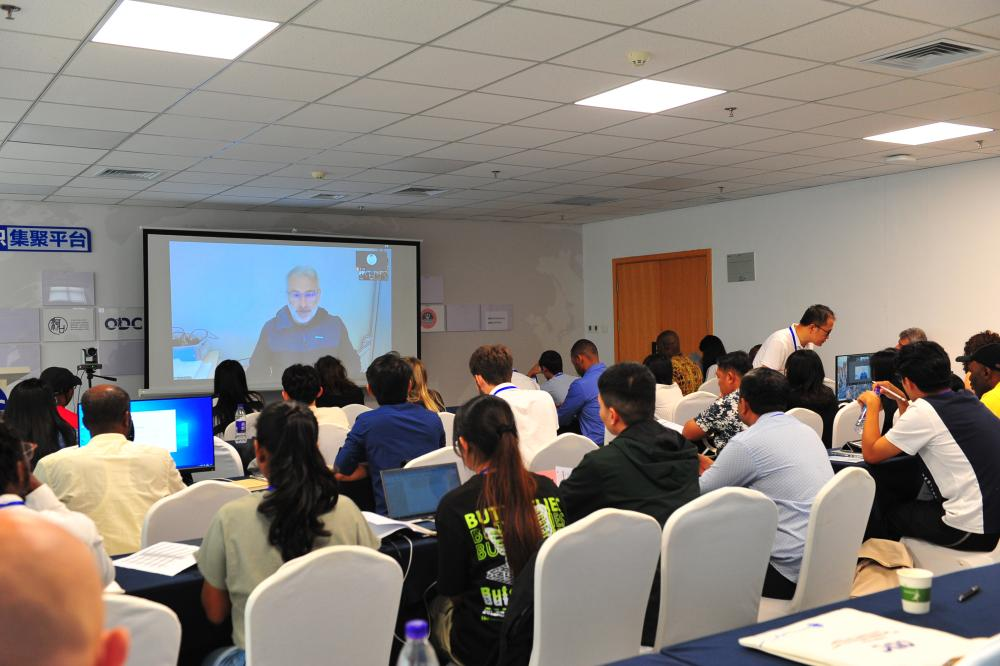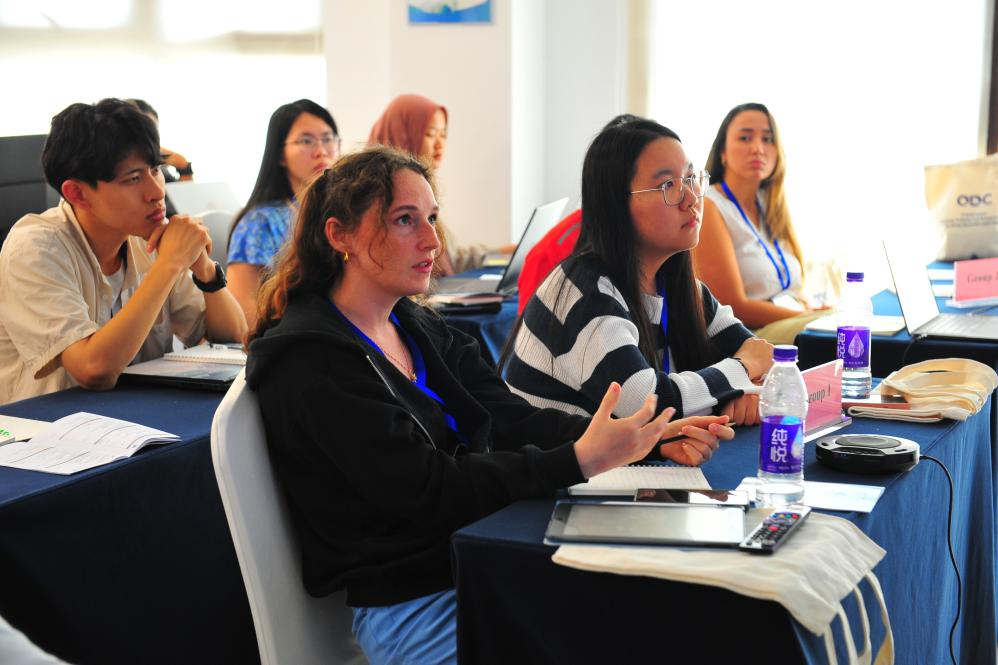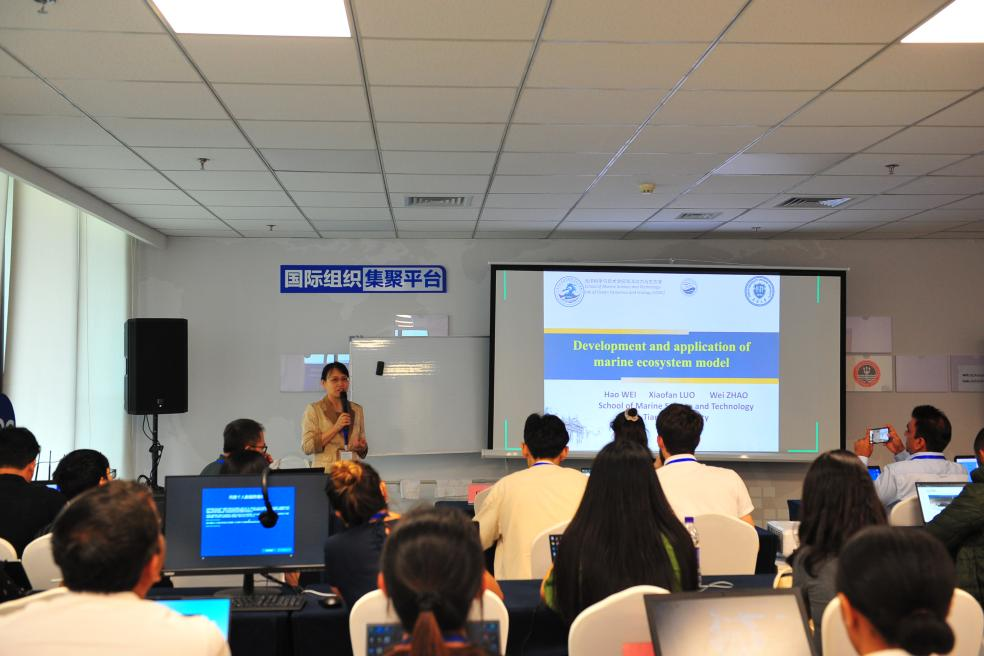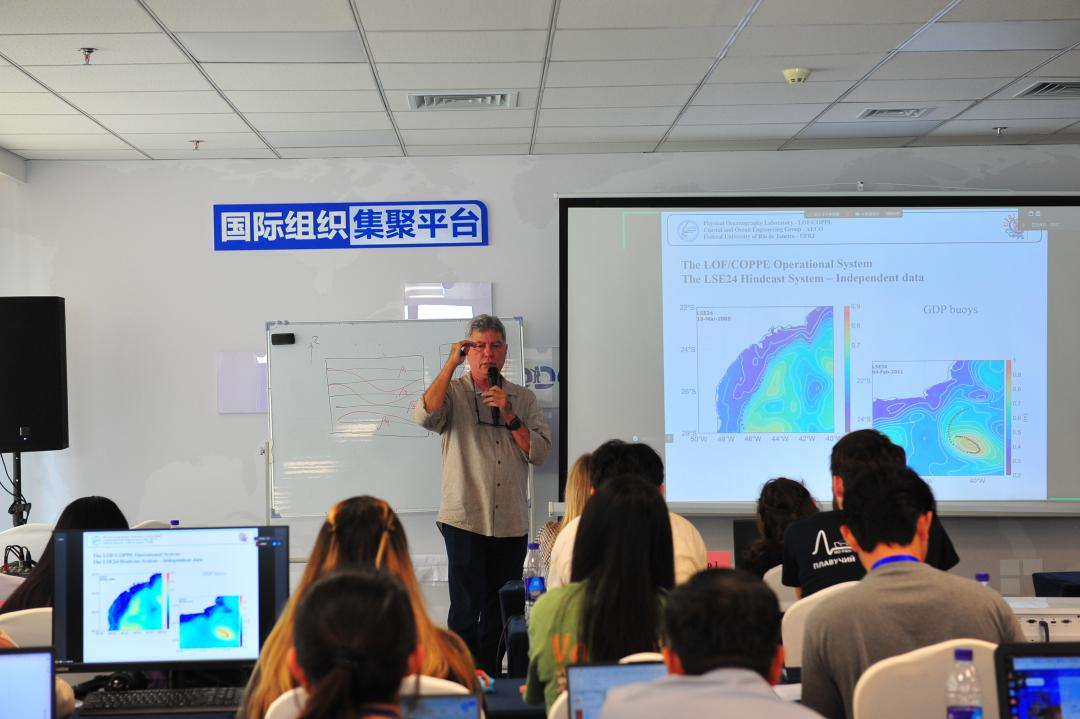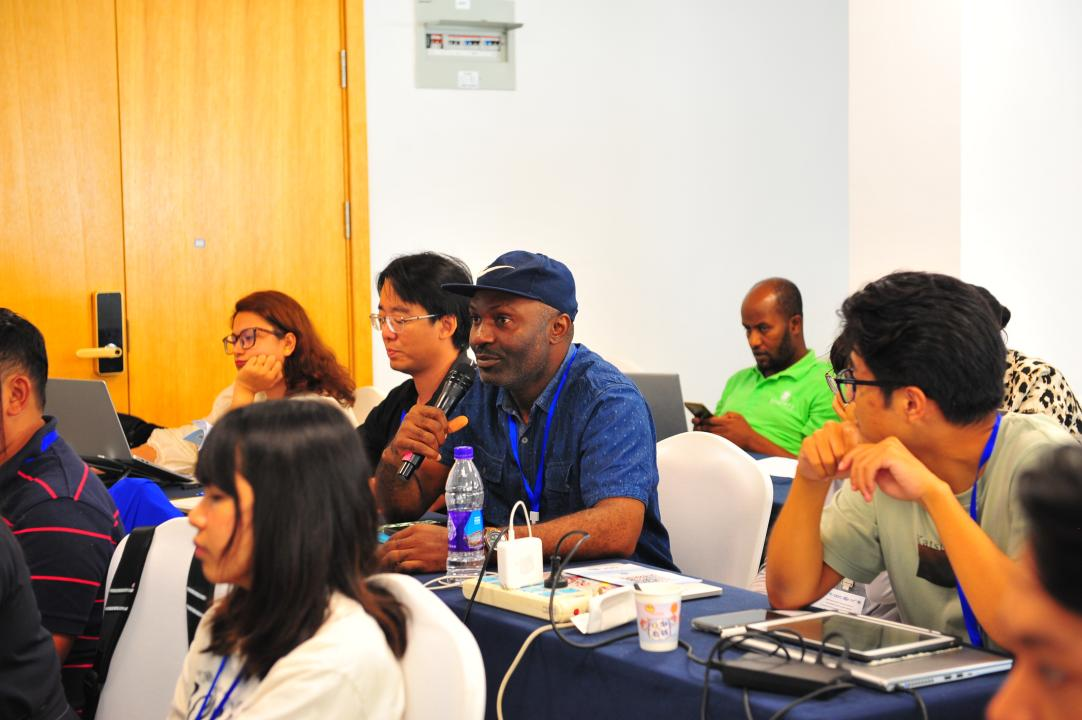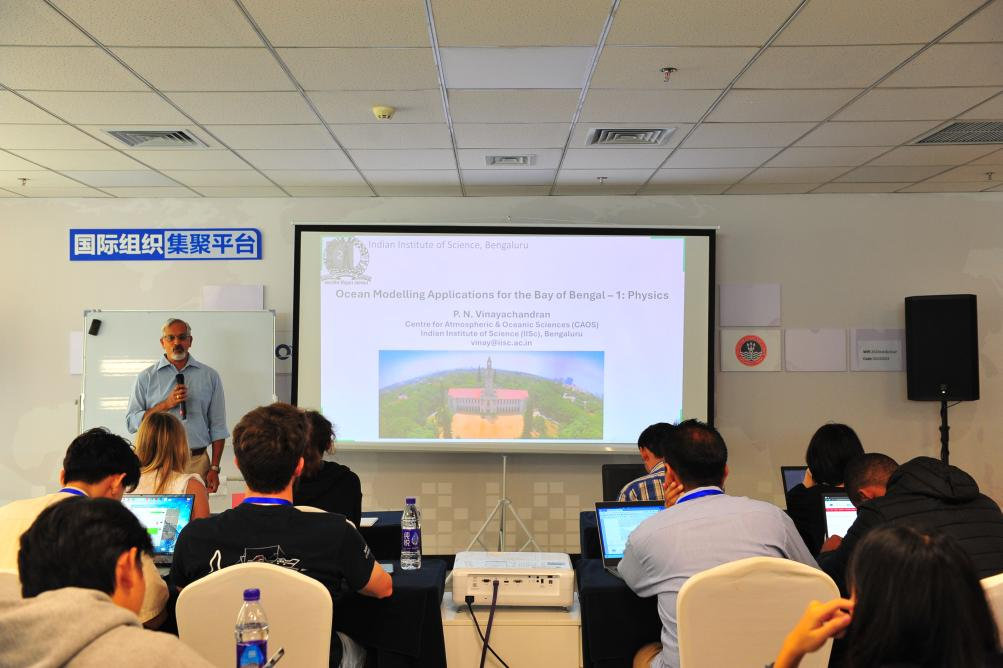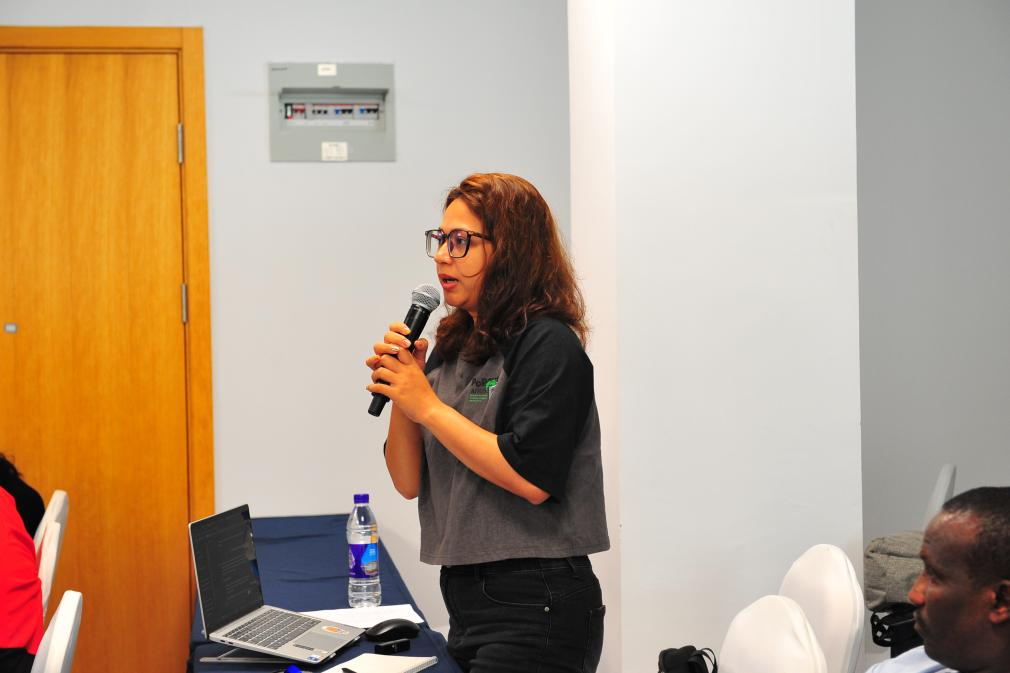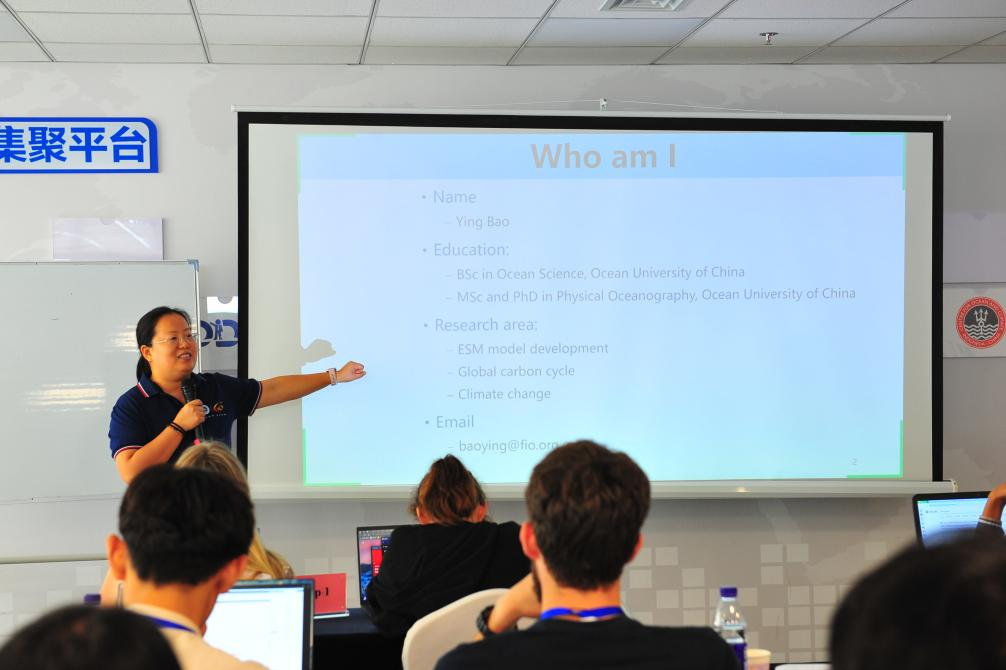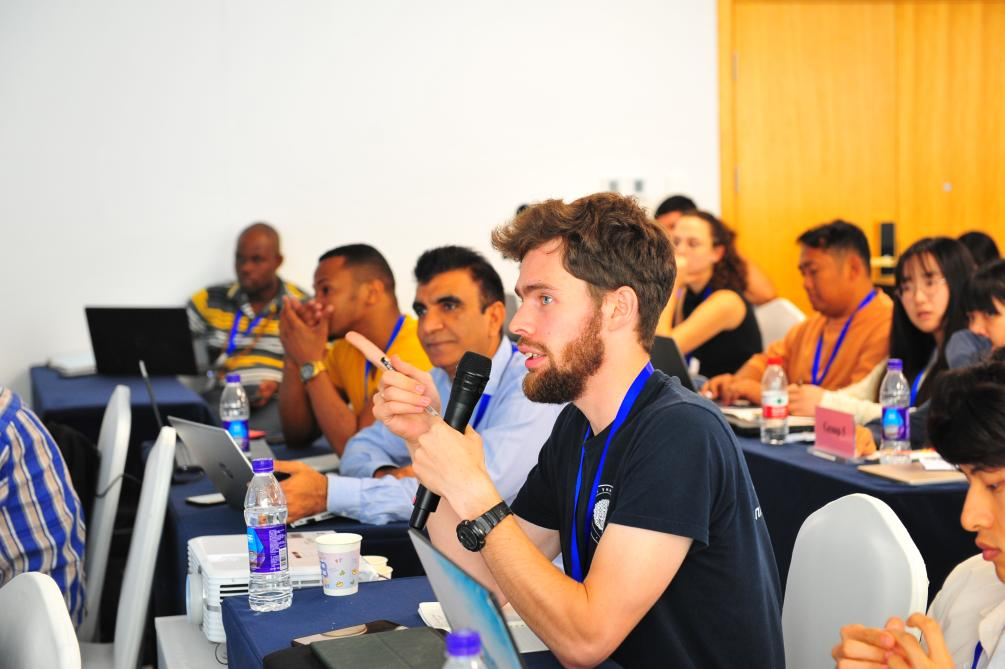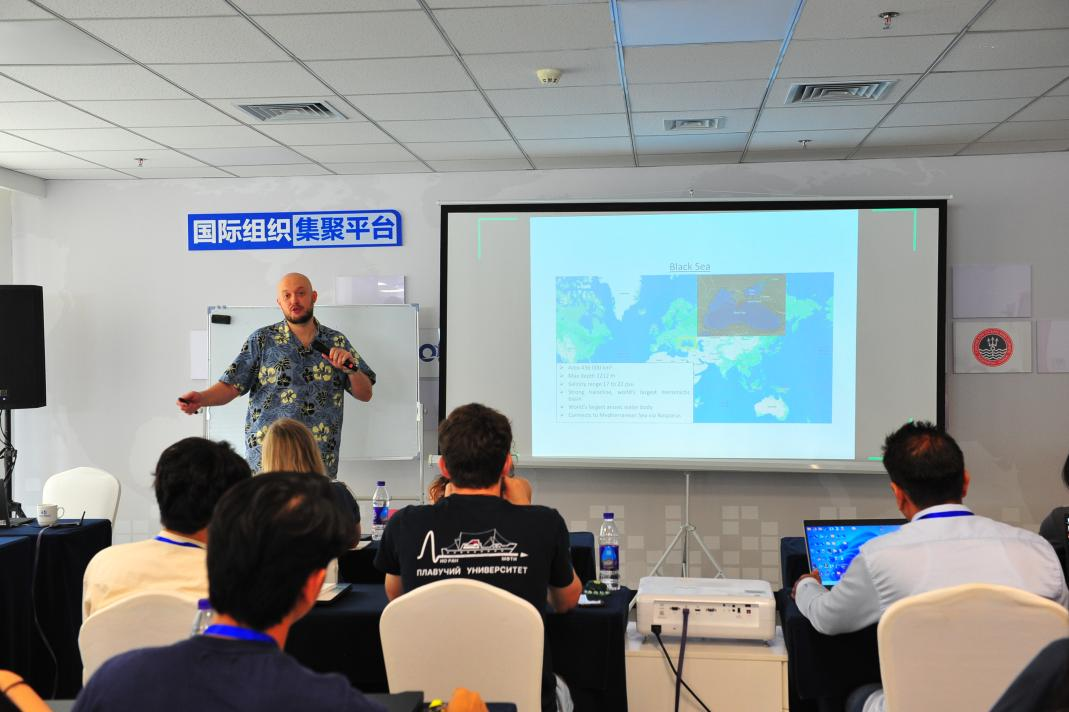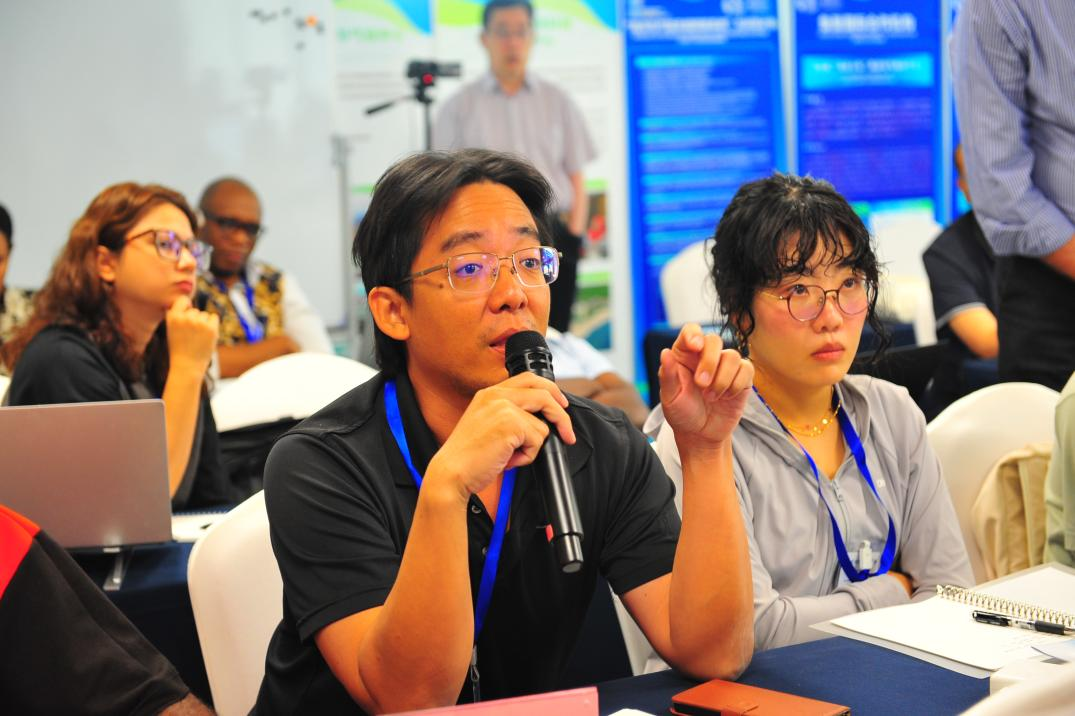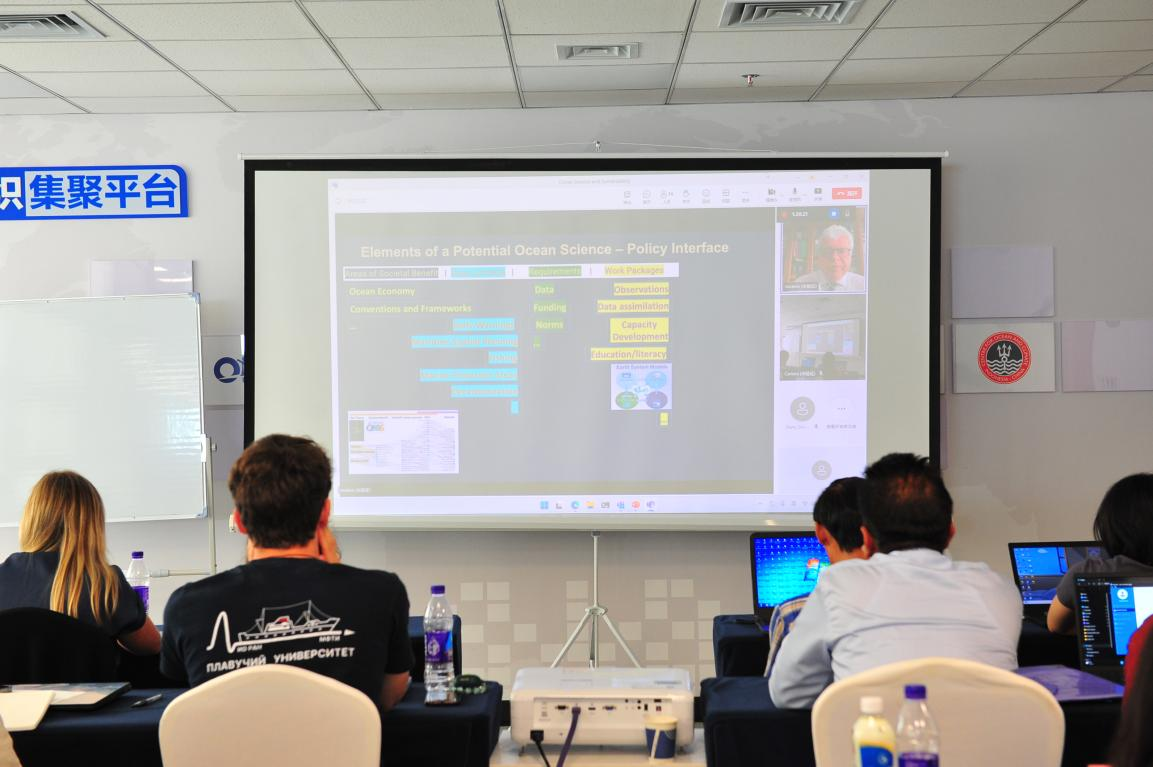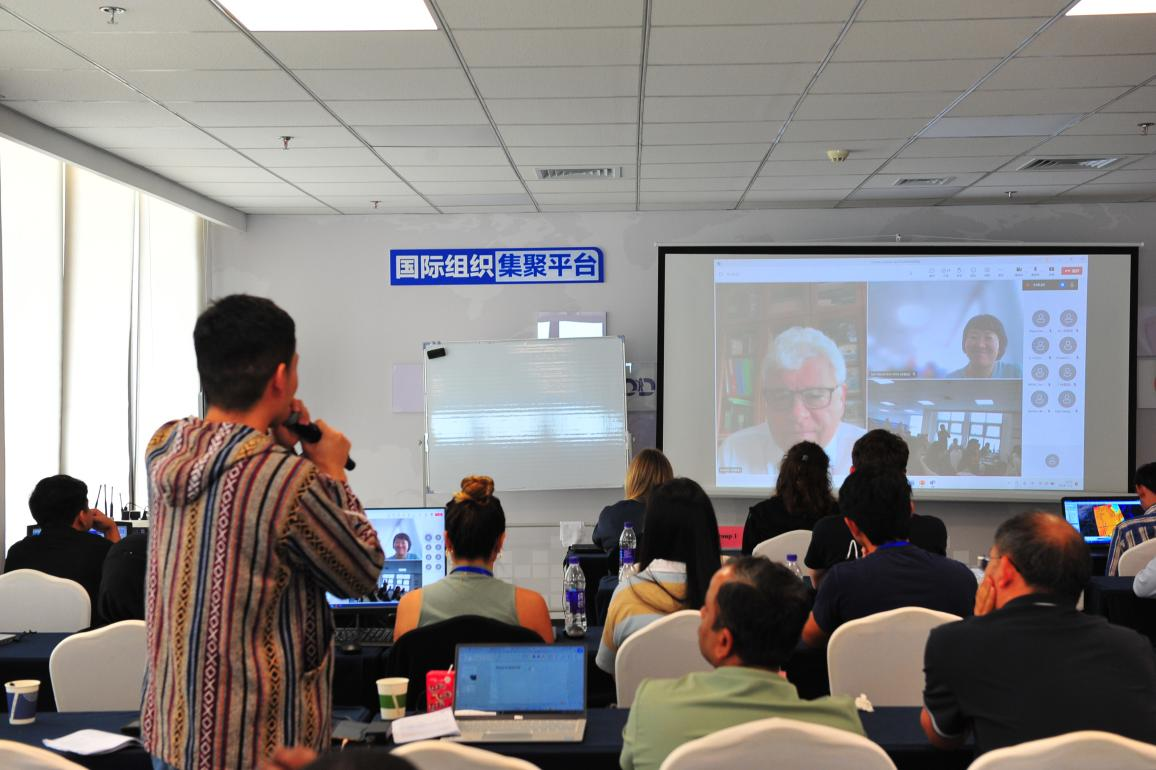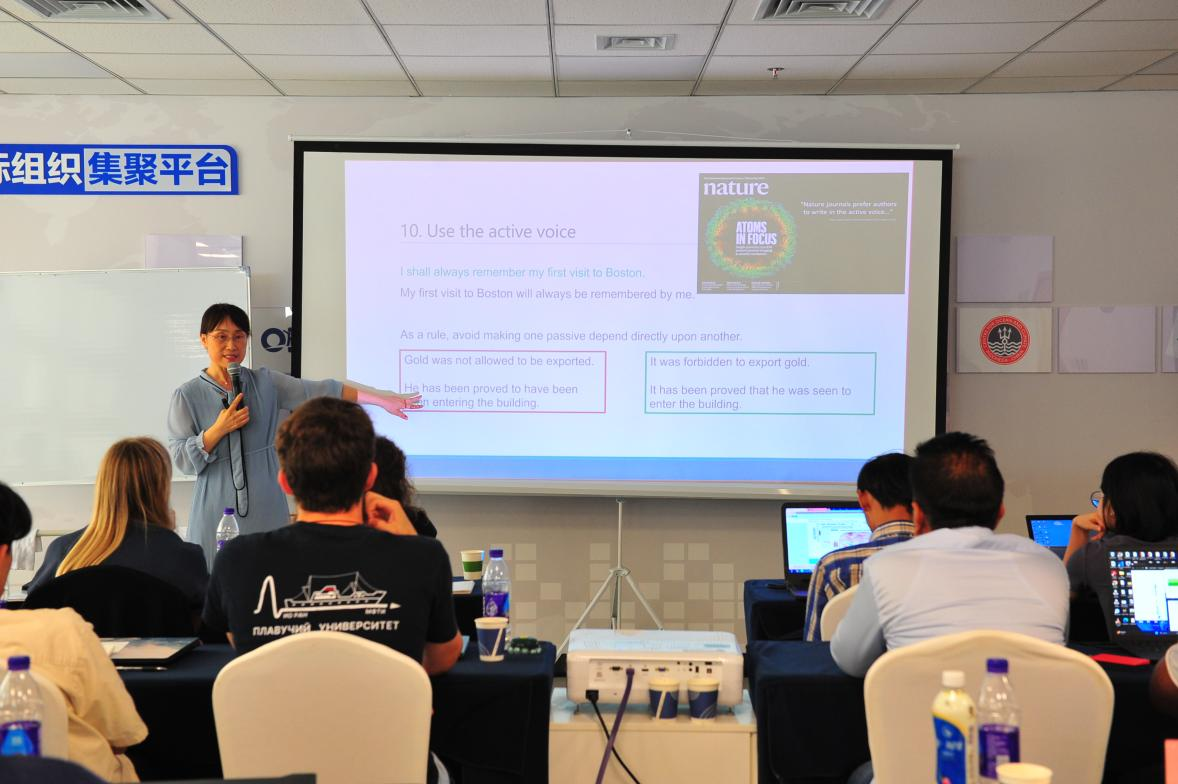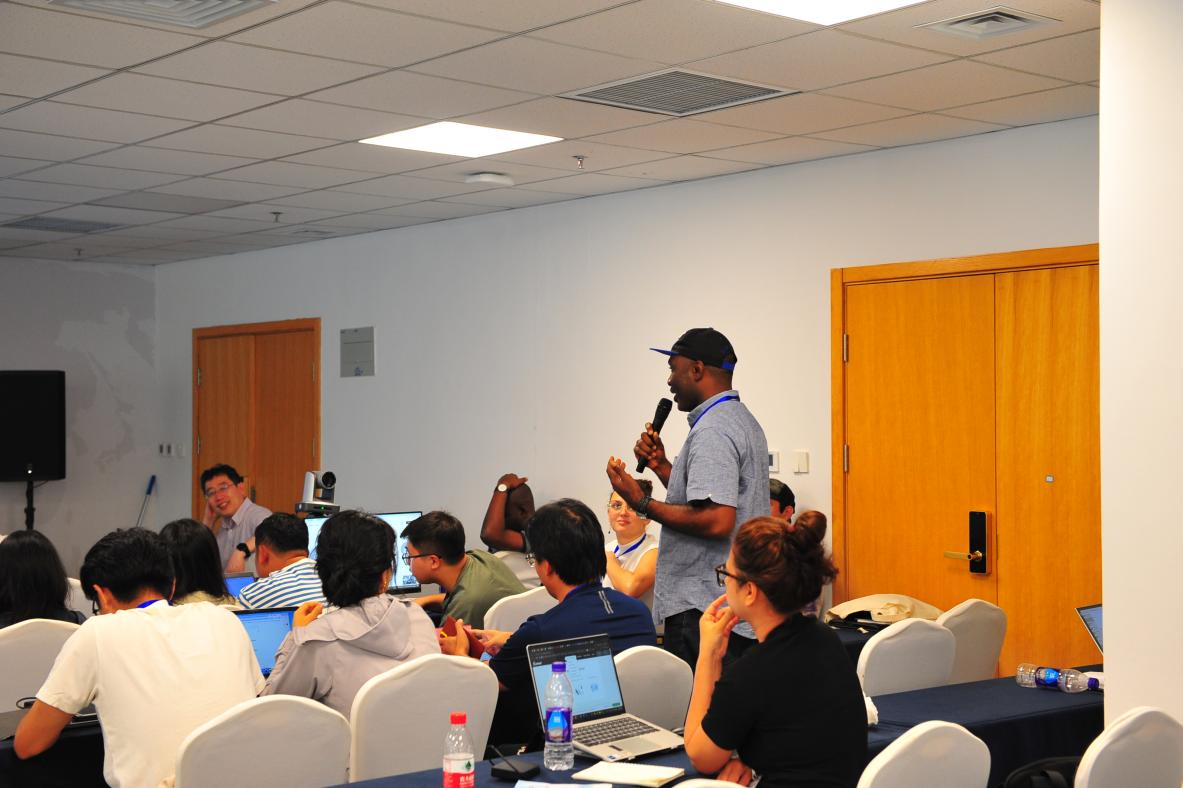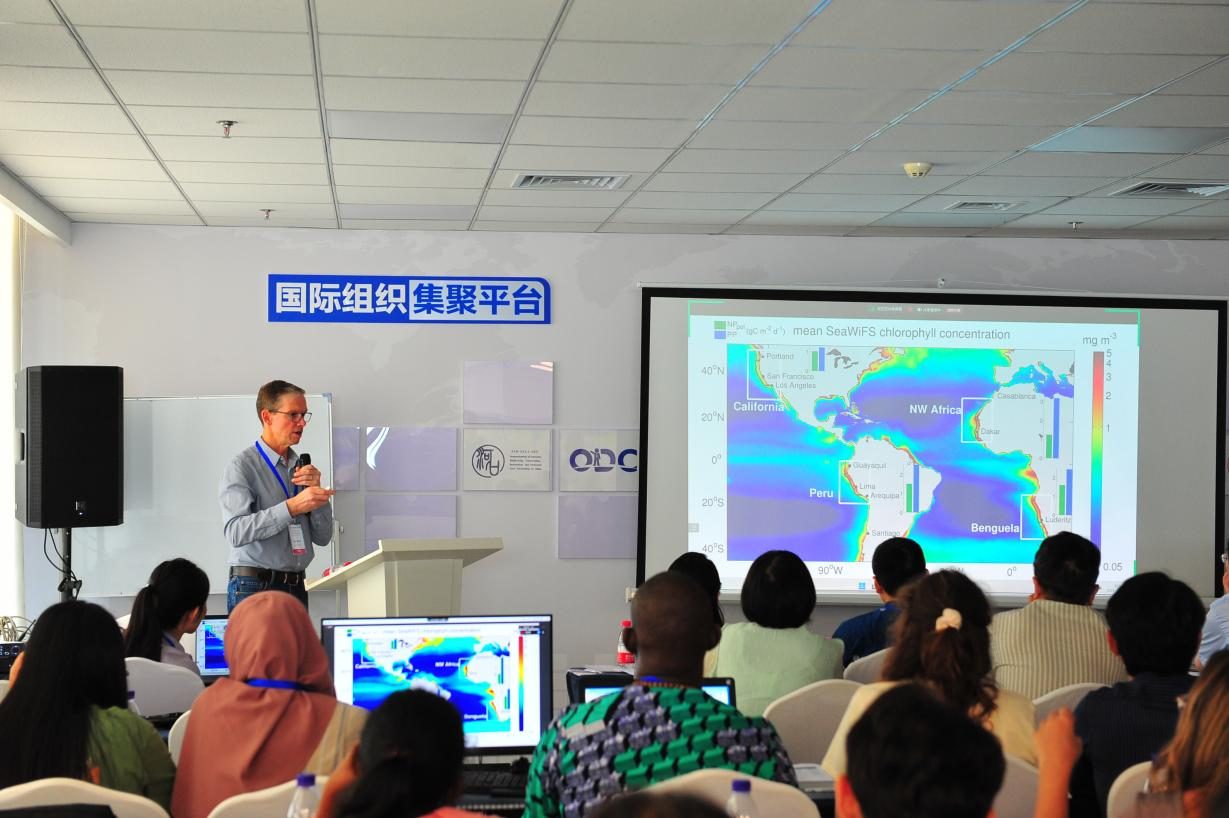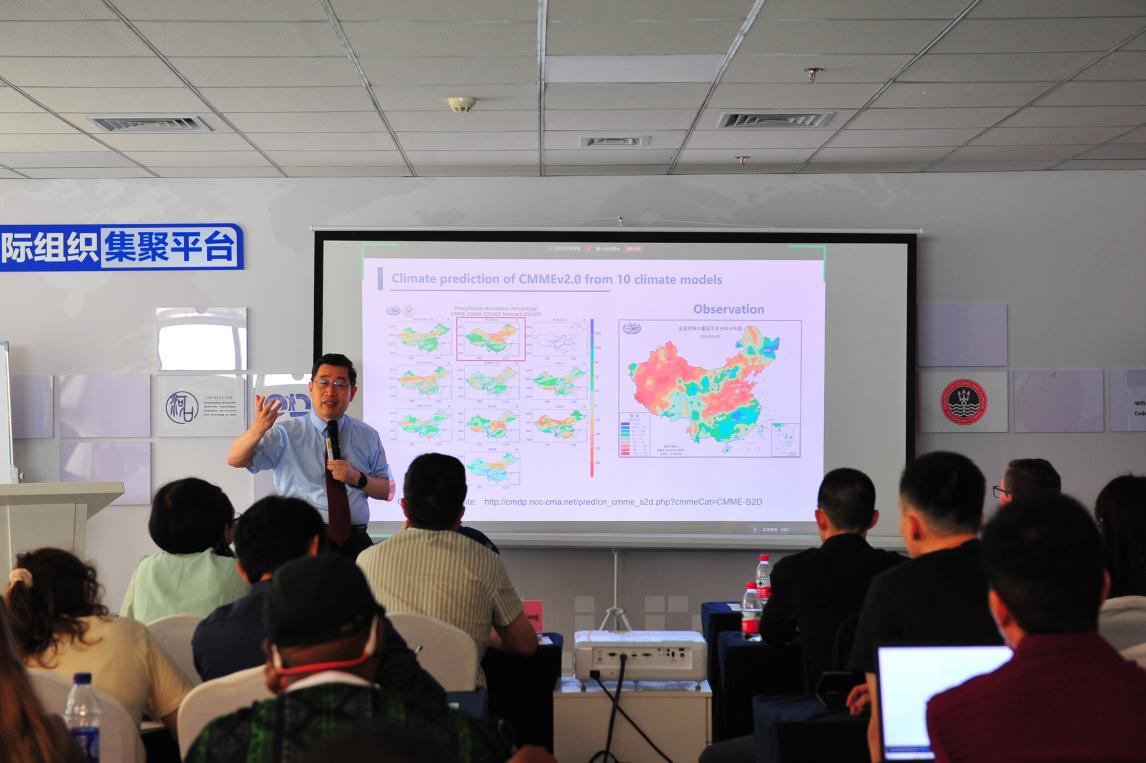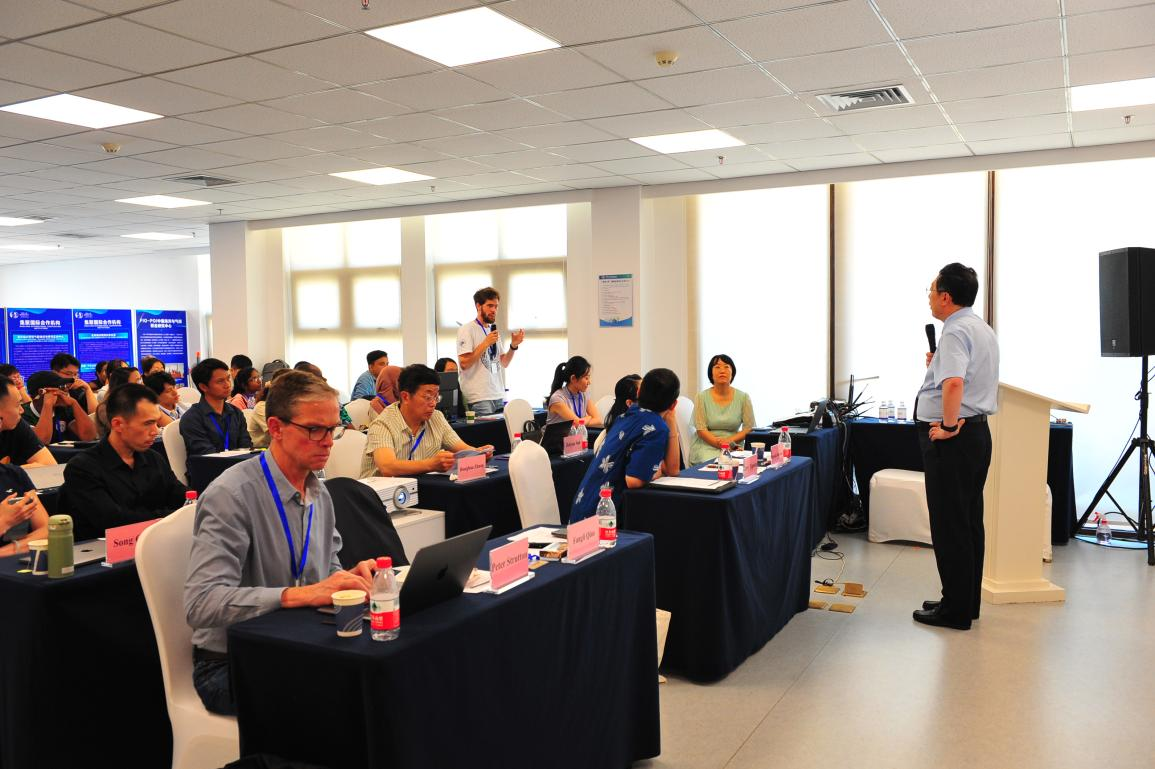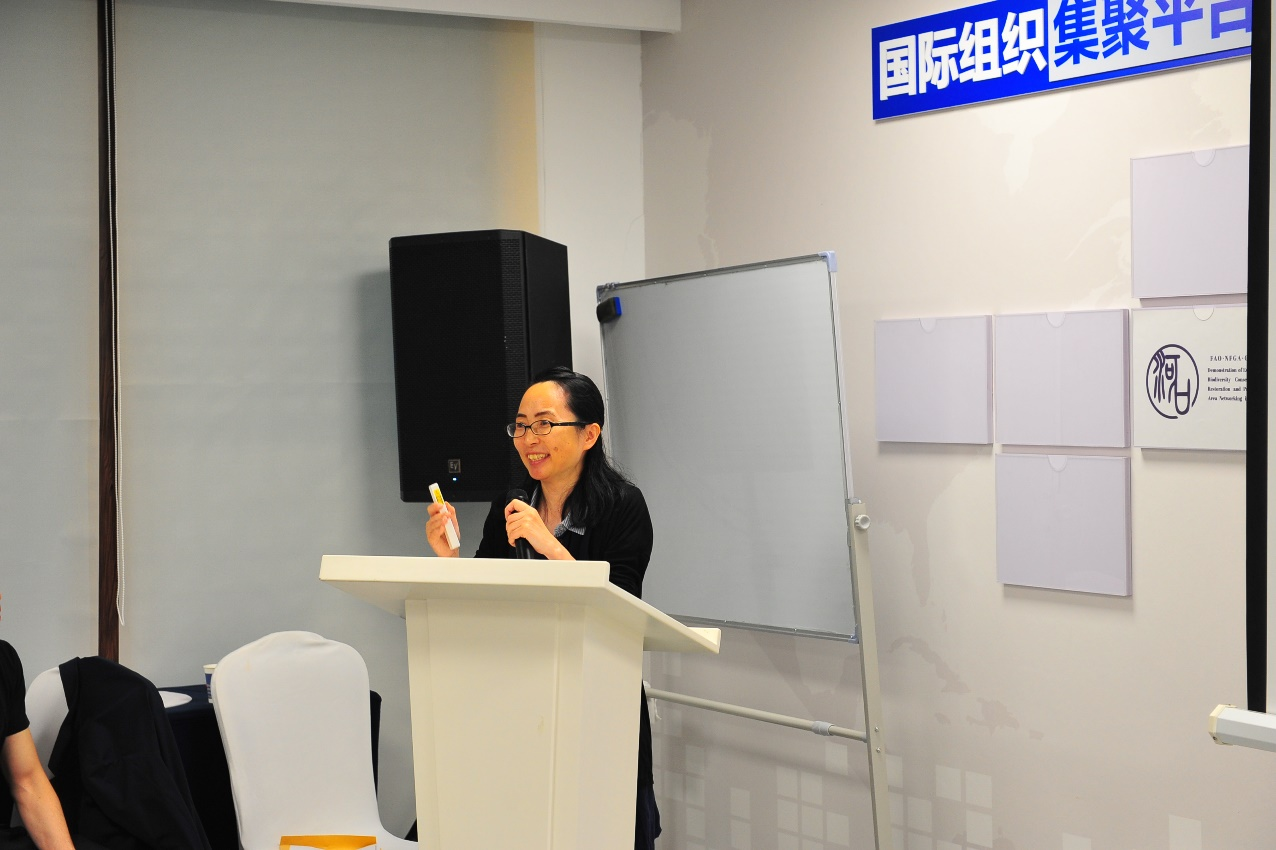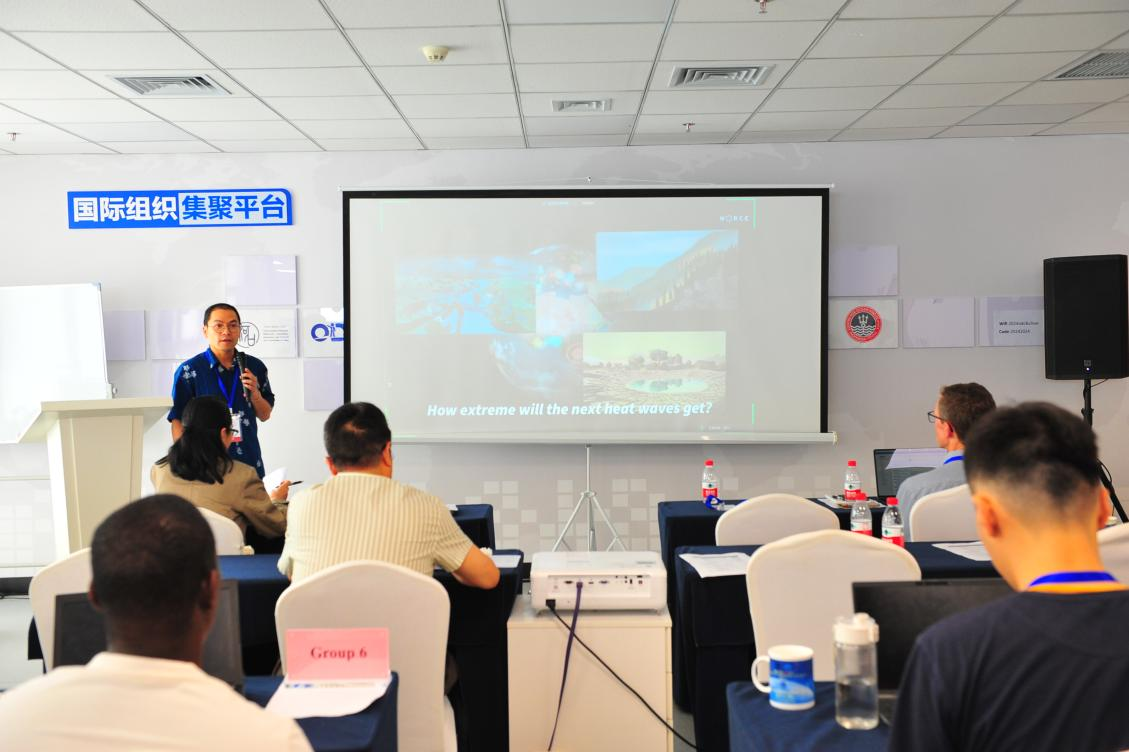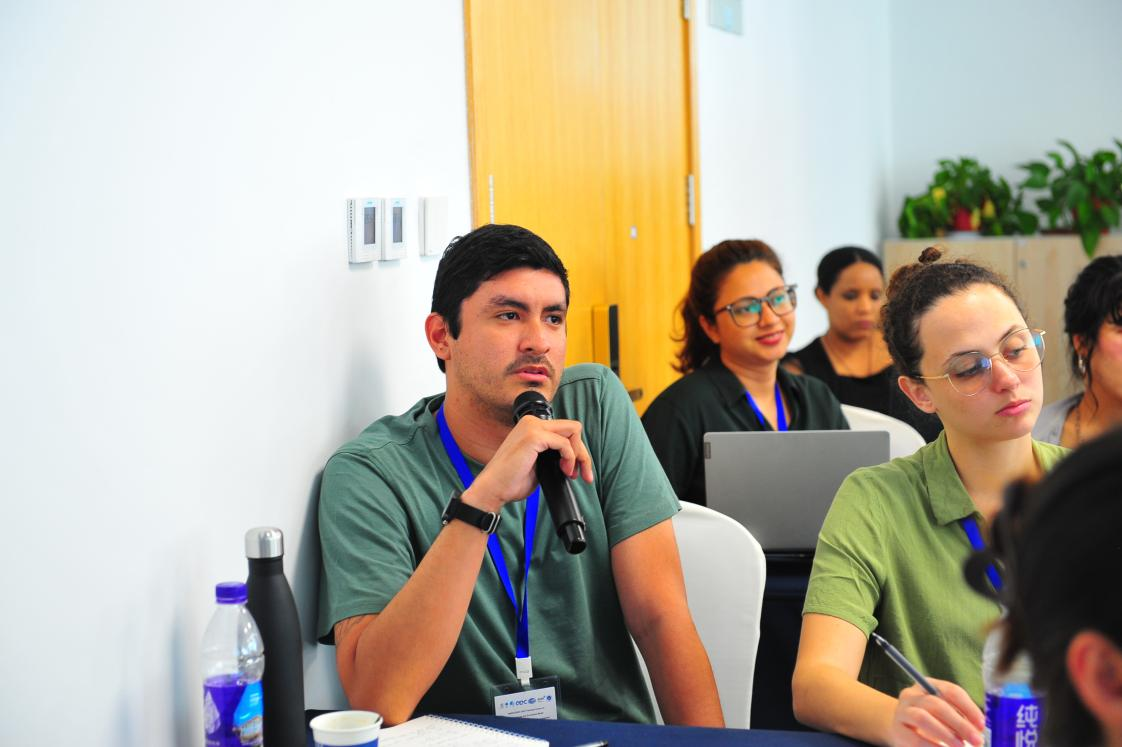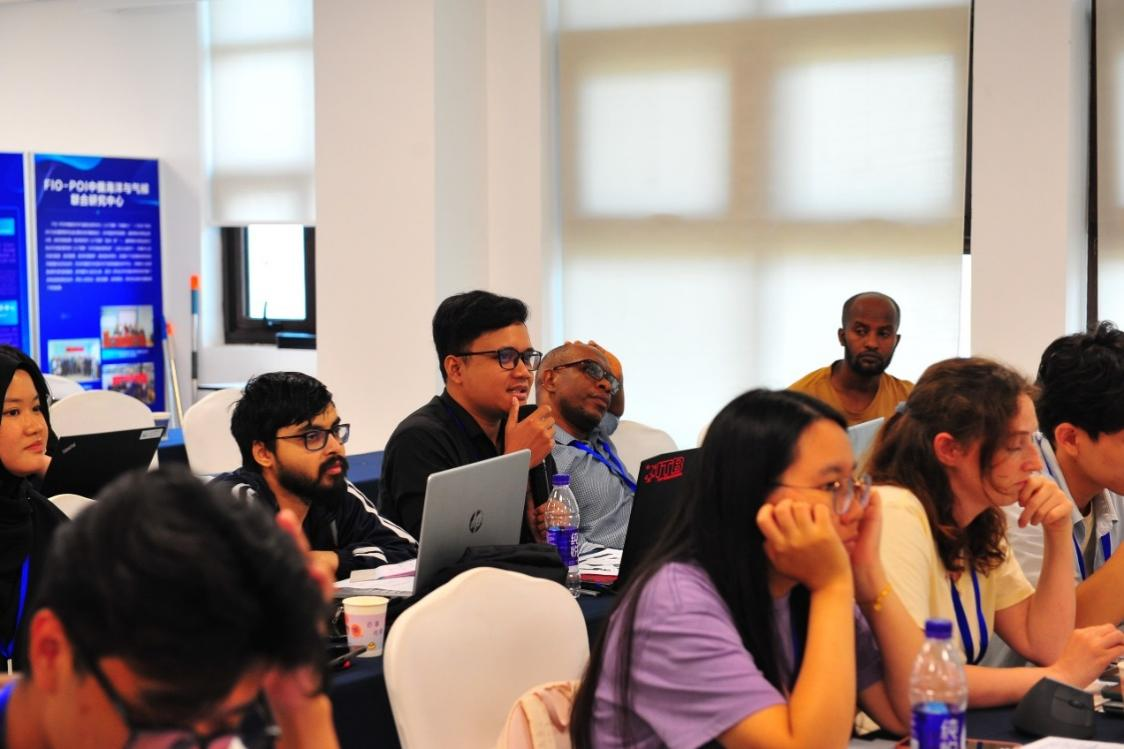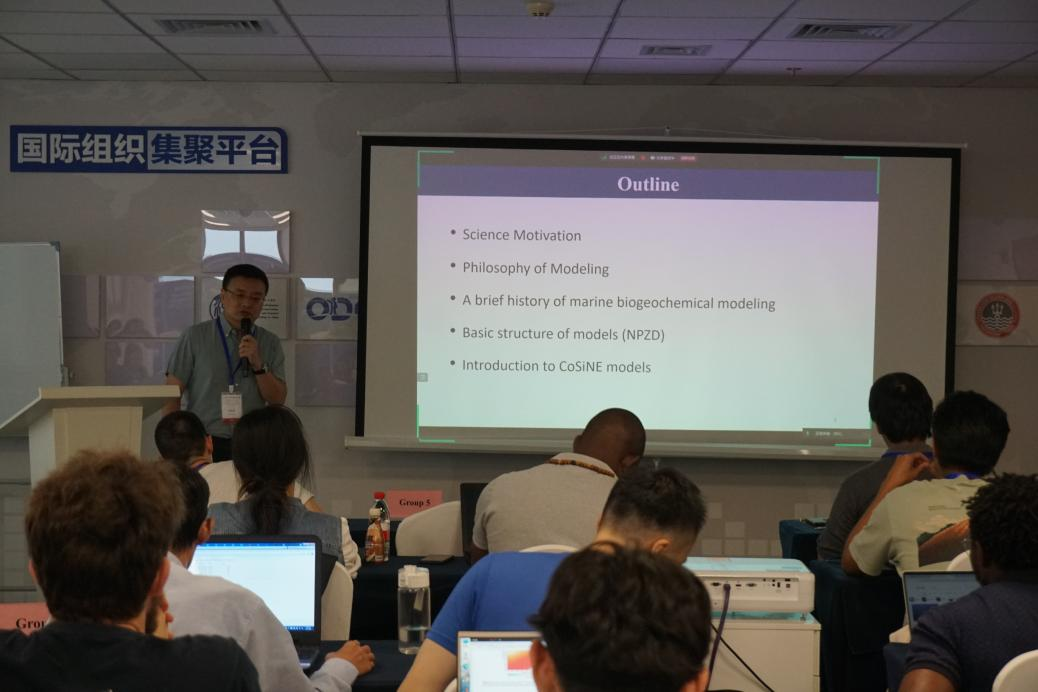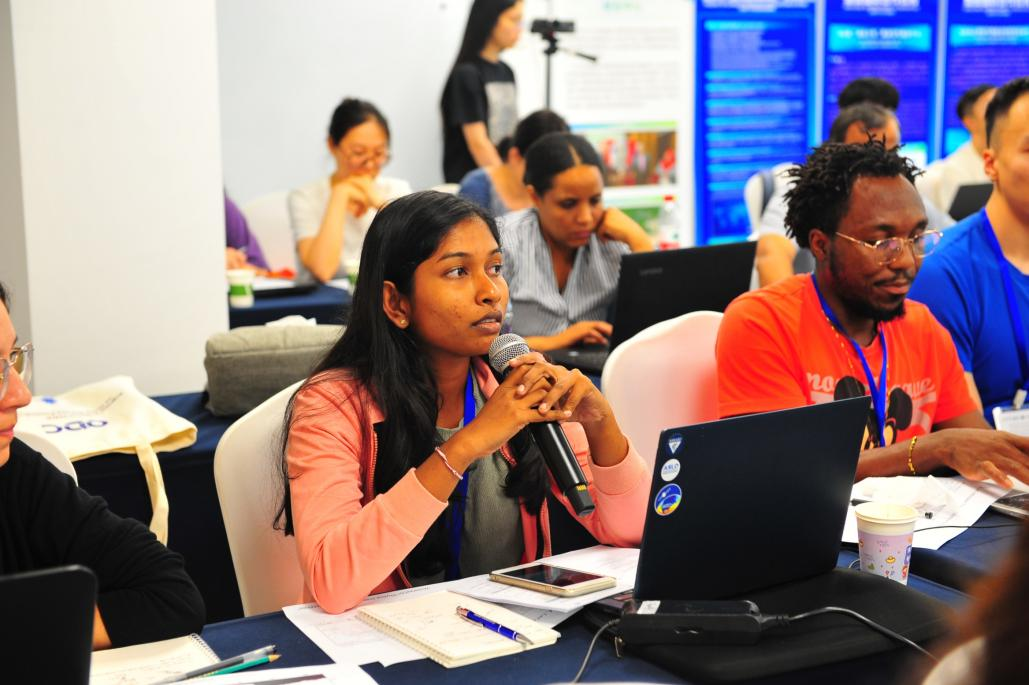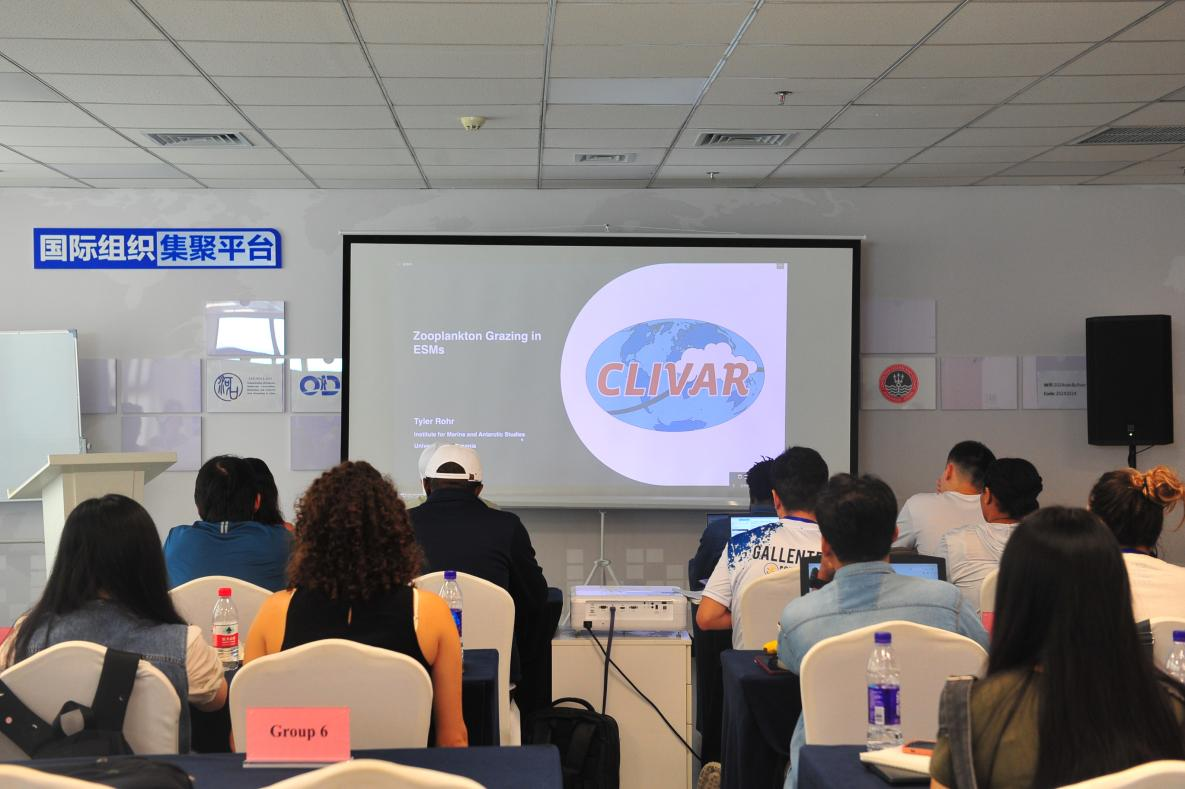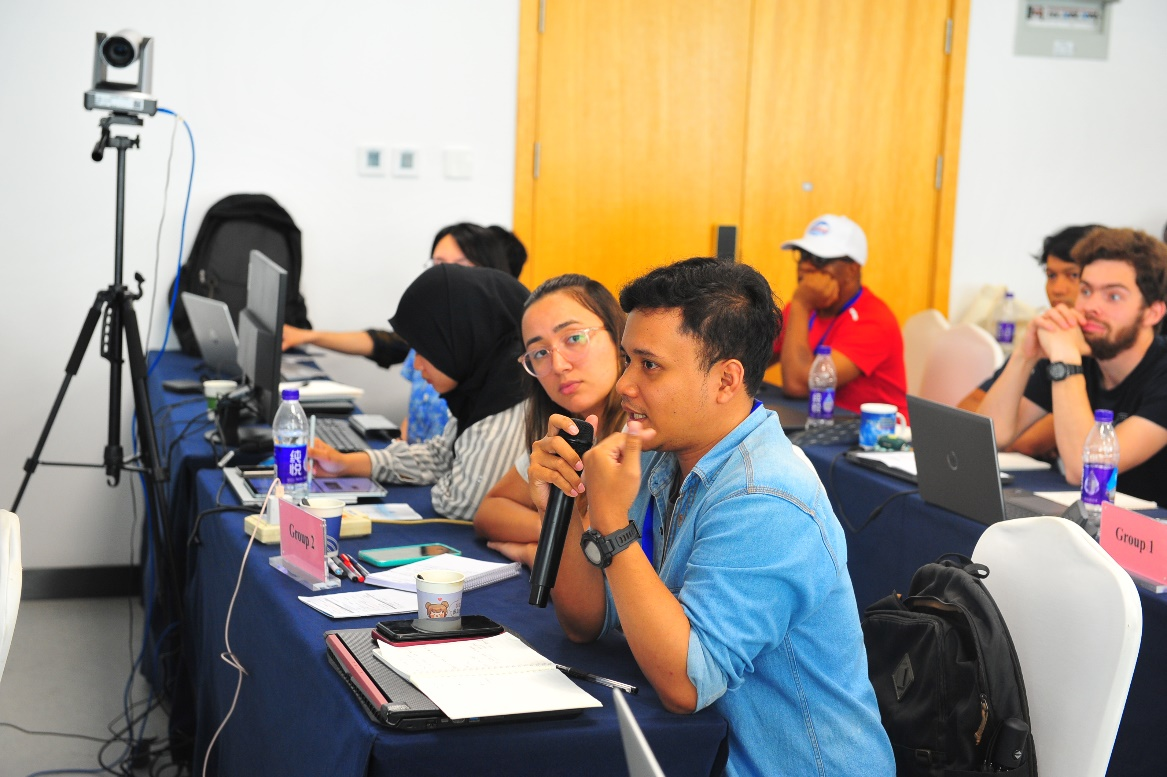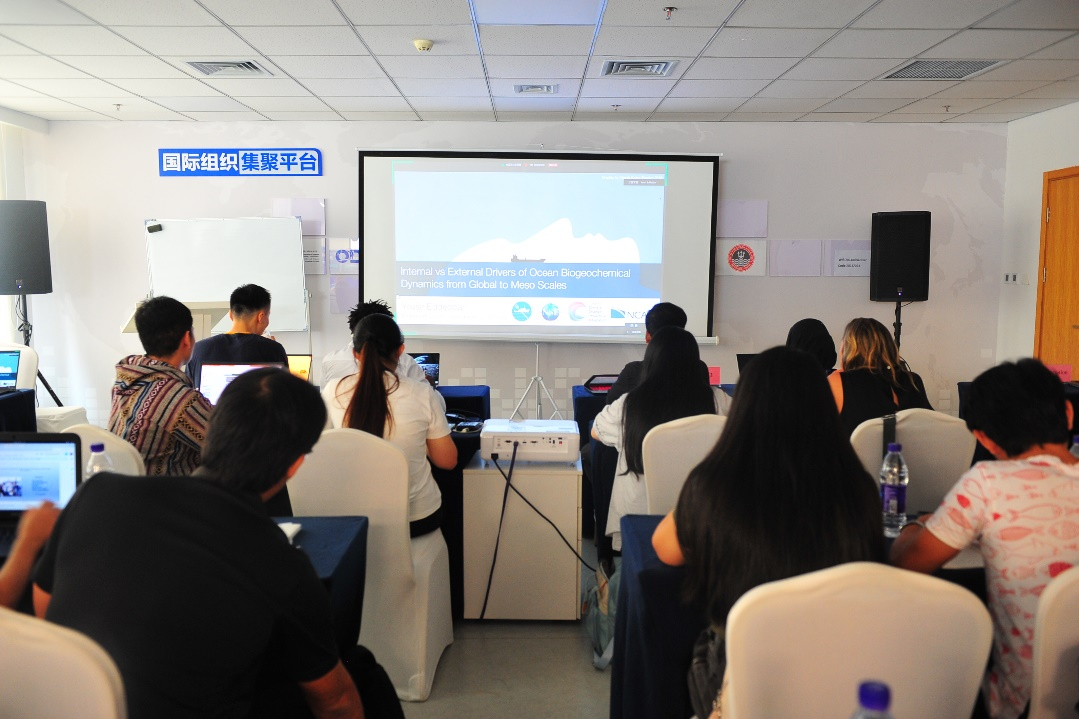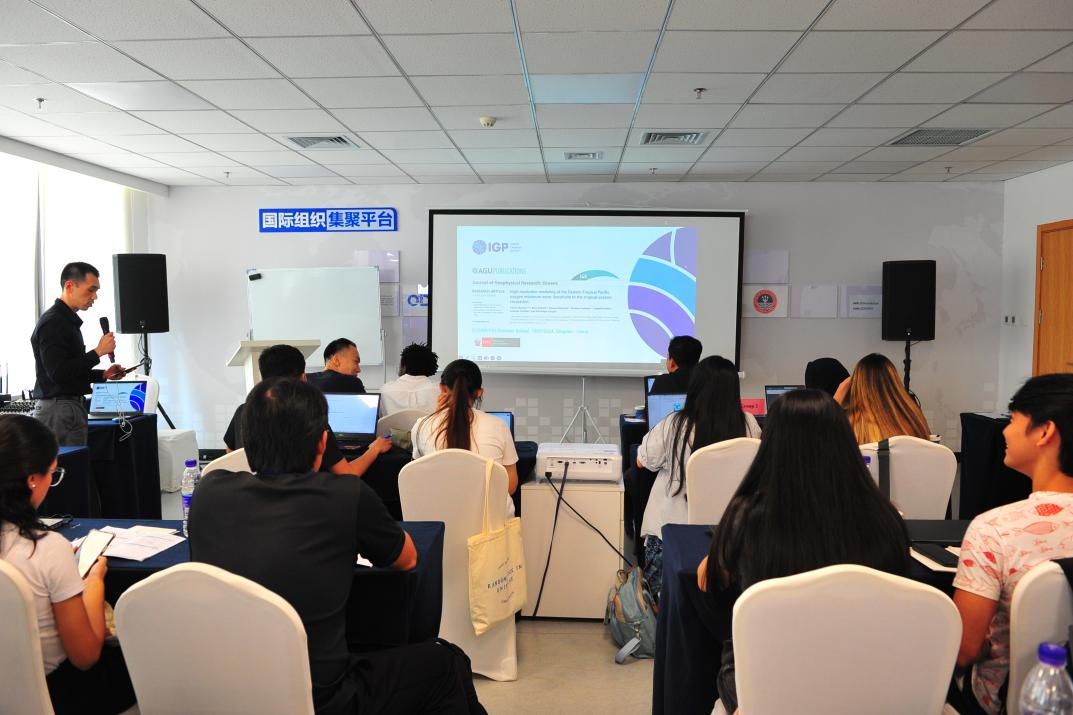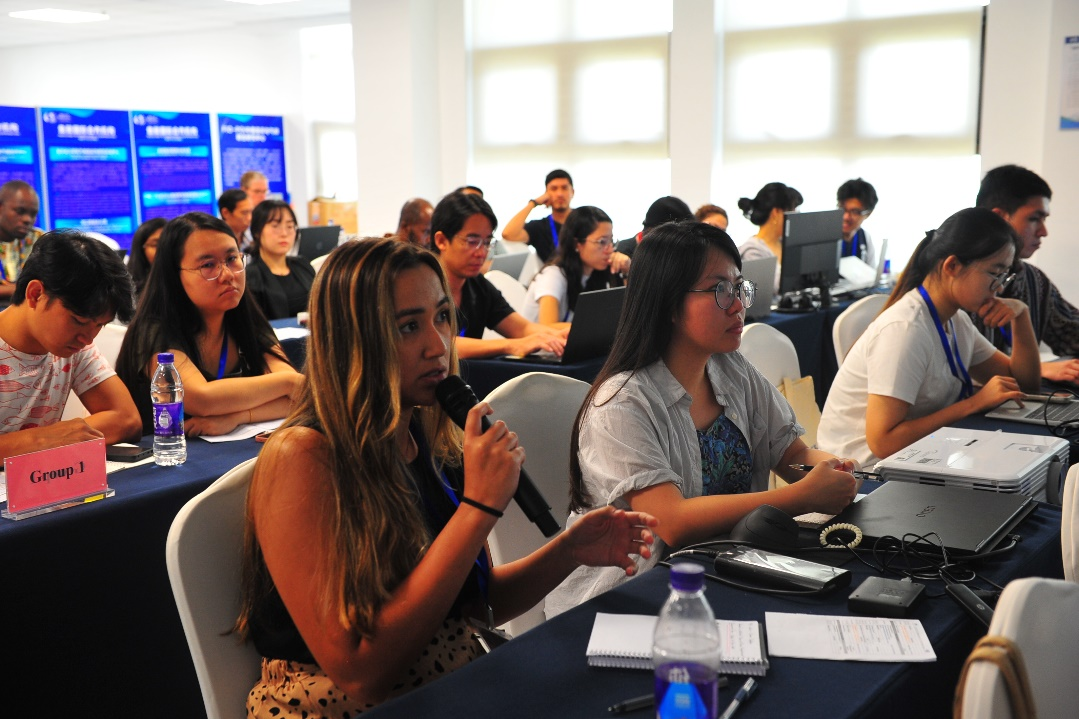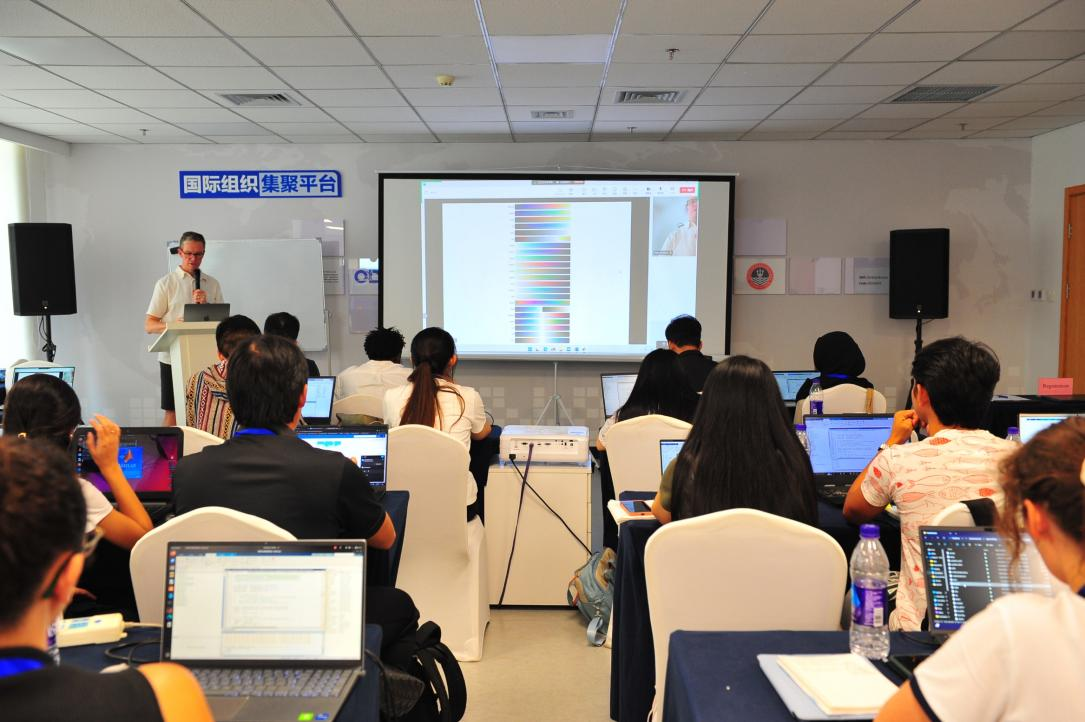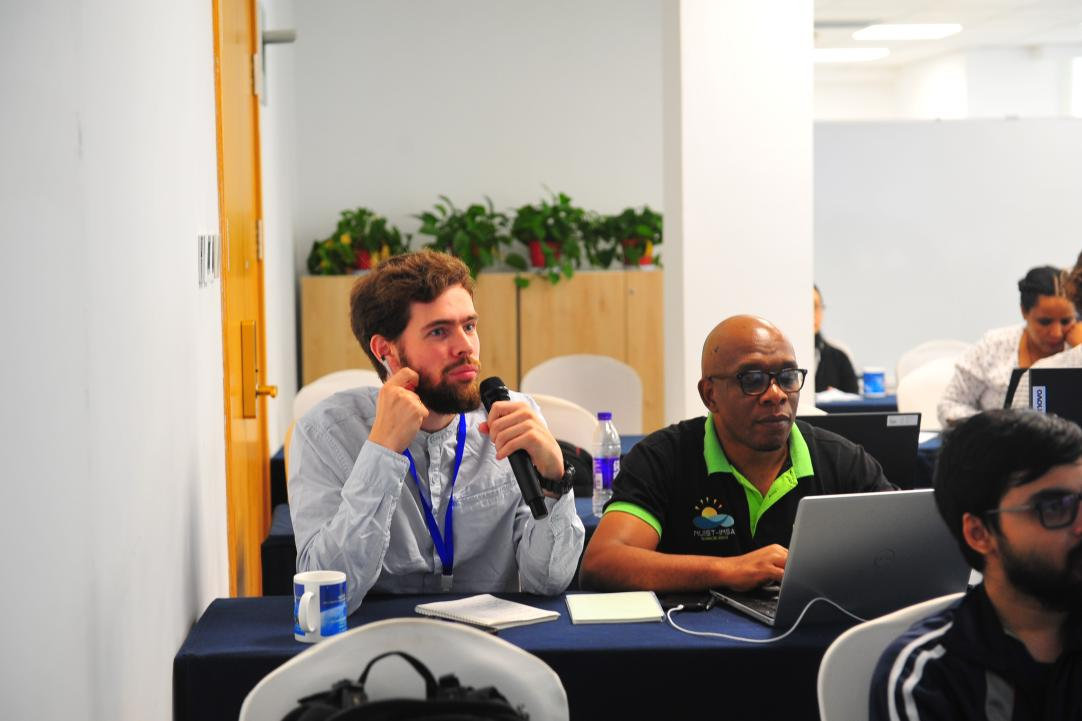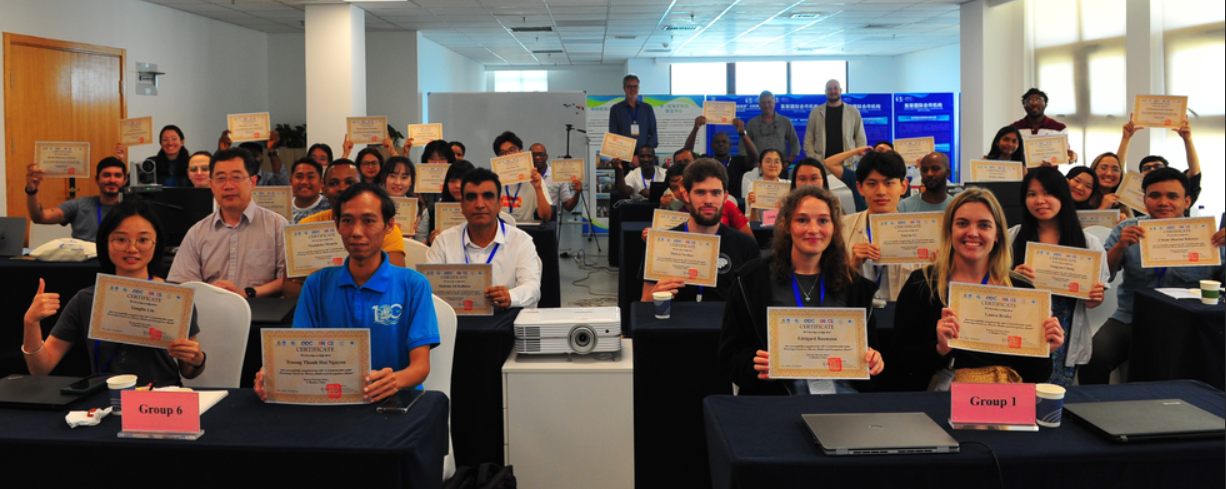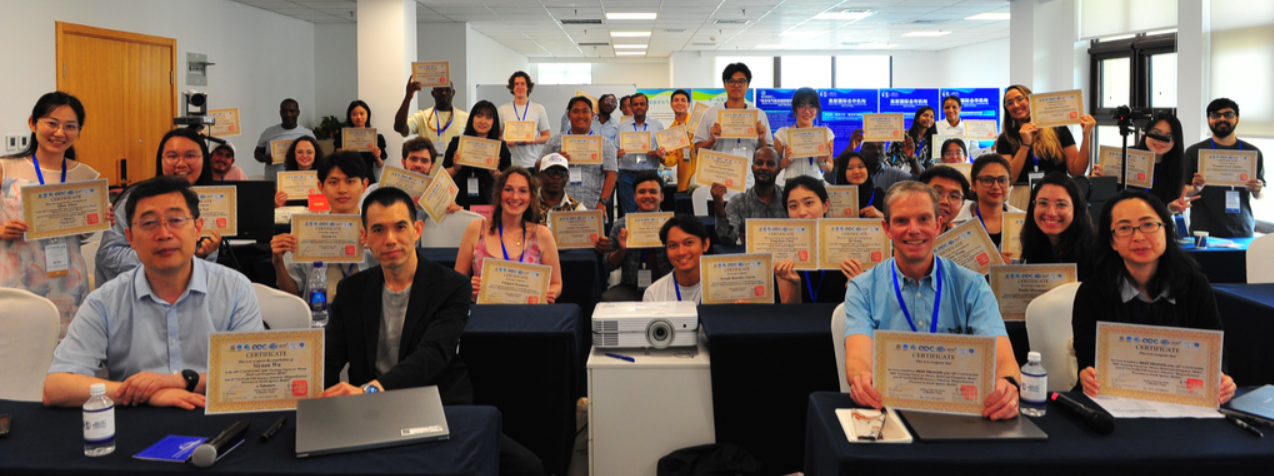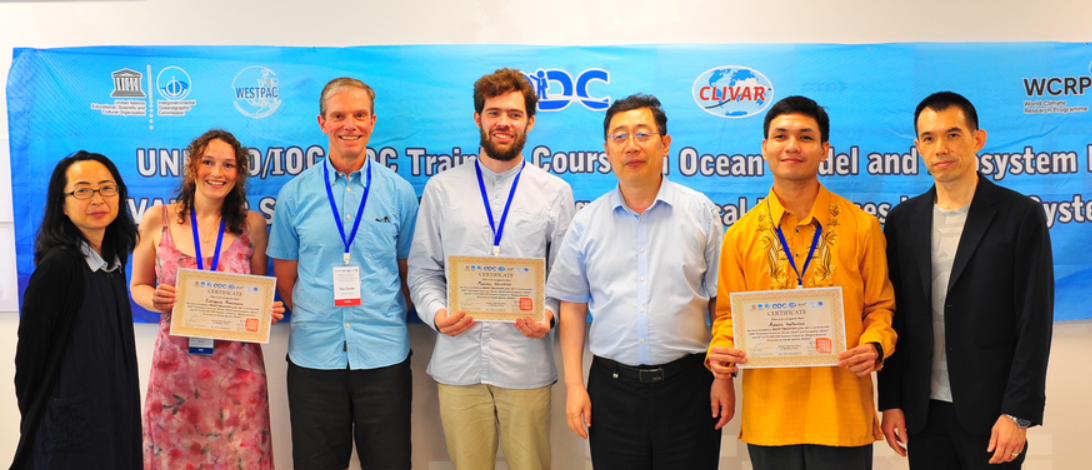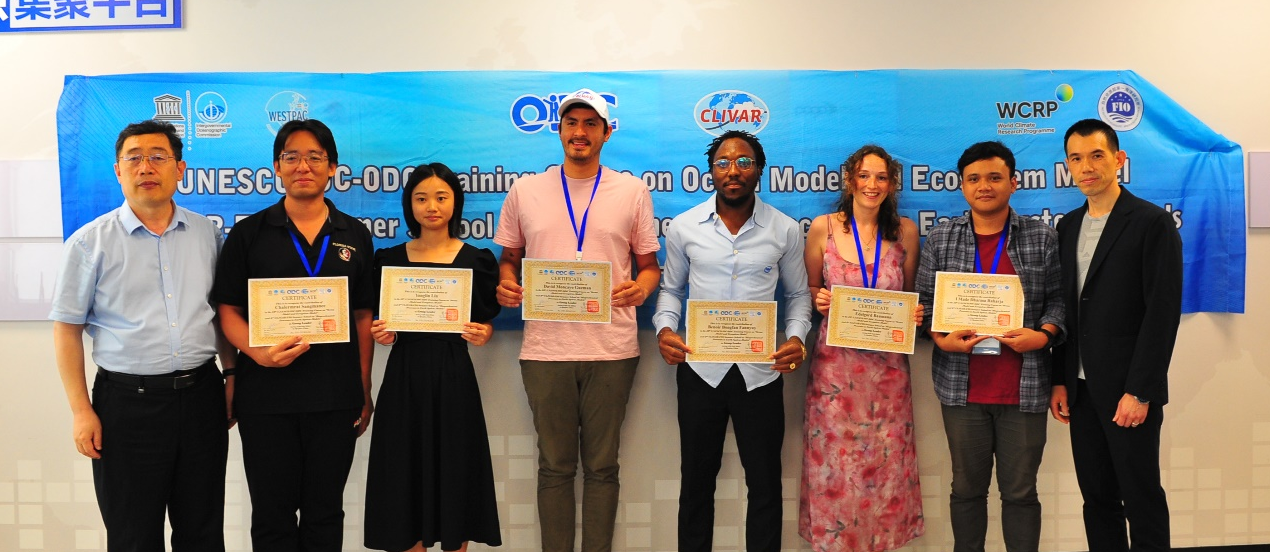1.Opening CeremonyOn July 8th 2024, the 13th UNESCO/IOC Regional Training and Research Center on Ocean Dynamics and Climate (hereinafter referred to as “ODC Center”) Training Course, themed on Ocean Model and Ecosystem Model, successfully convened in Qingdao. UNESCO/IOC-ODC center aims to promote the international cooperation and enhance the research capacity in the WESTPAC region on ocean dynamics, air-sea interactions, climate change and numerical modelling through the provision of international annual training courses and workshops to junior scientists and doctoral/master students mainly from the member states of IOC in the Western Pacific. Since its establishment, ODC Center has carried out and coordinated series of training courses, activities, workshops and international research programmers, which are featured with both foundational and high-level courses/lectures, enough hands-on exercises, comfortable group discussions, and intensive interactions among trainees and experts.  On July 15th 2024, the 3rd CLIVAR-FIO Summer School, themed on Biogeochemical Processes in Earth System Models, successfully convened in Qingdao. 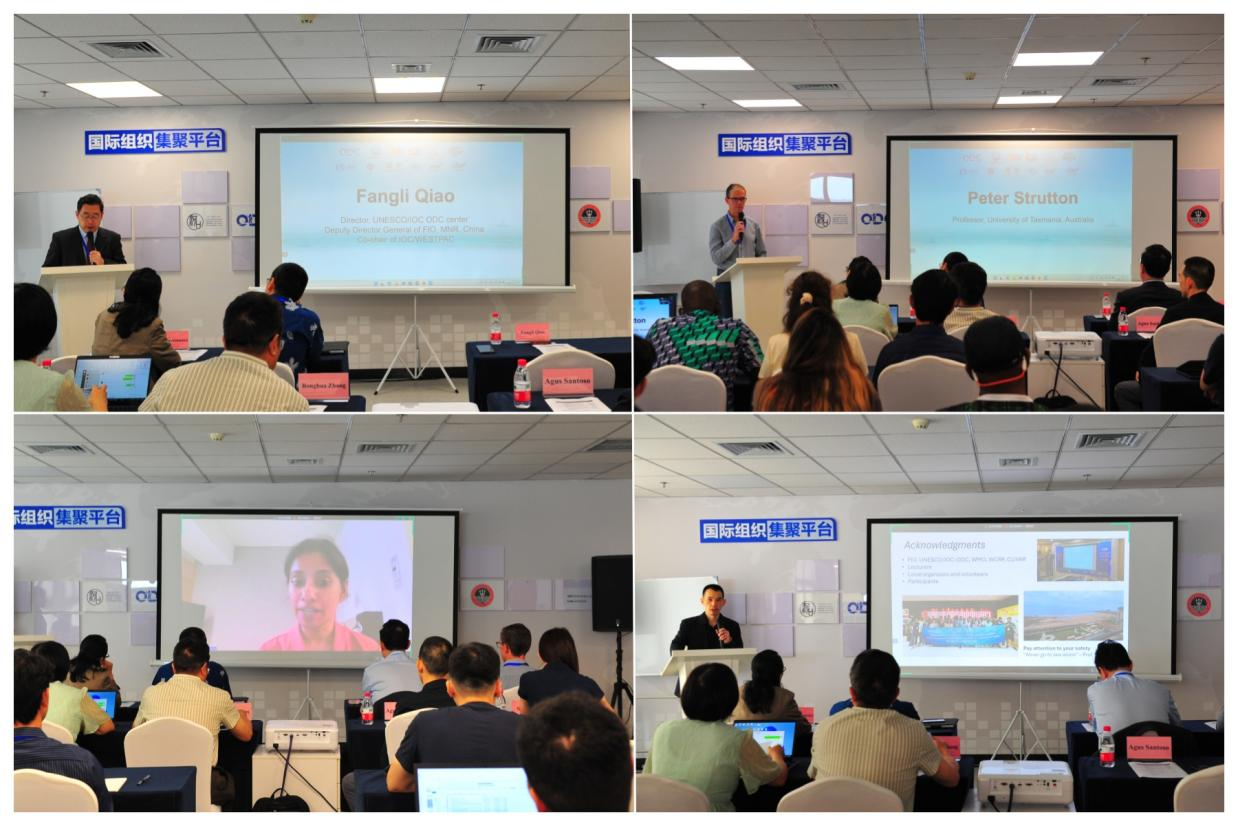 2.Lecturer lectures
On July 10th 2024, Prof. Afonso de Moraes Paiva gave a lecture on “A regional operational system for the Western South Atlantic Ocean”. It described the Western Atlantic Regional Operational System (WAROS) developed by the Laboratory of Physical Oceanography (LOF/COPPE) of the Federal University of Rio de Janeiro (UFRJ), aiming at monitoring and modeling the oceanographic conditions in the Western Atlantic Ocean by means of a reliable forecasting and reanalysis system.
On July 11th 2024, Prof. P. N. Vinayachandran gave a lecture on “Ocean Modelling Applications for the Bay of Bengal”. It discussed in detail ocean modeling applications in the Bay of Bengal, including the dominant role of the ocean in the climate system, the classification and challenges of various ocean models, and the simulation of specific ocean phenomena such as the Indian Ocean dipole and seasonal circulation.
On July 11th 2024, Prof. Ying Bao gave a lecture on “Modelling the Ecosystem in ESM Model”. It covered the definition of ESM, the components of the global carbon cycle, the interaction of the carbon cycle with climate, and how human activities affect the carbon cycle and climate.
On July 12th 2024, Prof. Roman Sedakov gave a lecture on “The Development of a High-resolution Model of Ocean Circulation in Black Sea”. It outlined the development of a high-resolution model of ocean circulation in the Black Sea and the Sea of Azov, detailing the characteristics of the Black Sea, model validation, numerical issues, and potential applications.
On July 12th 2024, Prof. Vladikmir Ryabinin gave a lecture on “Ocean Science and Sustainability”. It emphasized the social responsibility of scientists in promoting sustainability and the unique role of ocean science in fostering international consensus and peace.
On July 12th 2024, Prof. Chengjun Sun gave a lecture on “Scientific Paper Writing”. It covered the definition, purpose, writing techniques, structure, and peer review process of a scientific paper.
On July 15th 2024, Prof. Fangli Qiao gave a lecture on “Overarching scientific issues in ESM models”. It discusses key scientific issues in Earth System Models (ESM), particularly the impact of surface waves on climate prediction.
On July 15th 2024, Prof. Sayaka Yasunaka gave a lecture on “CO2 and nutrient variability in surface ocean”. It discussed the ocean biogeochemical cycles, air-sea CO2 exchange, and their impacts on global warming.
On July 15th 2024, Prof. Jerry Tjiputra gave a lecture on “Ocean biogeochemical cycle representation in Earth system models”. It discussed the representation of ocean biogeochemical cycles in Earth system models, focusing on the development and application of different models and their importance in climate simulation.
On July 16th 2024, Prof. Cecile Rosseaux and Prof. Lionel Arteaga gave a lecture on “BGC Processes and Observations Ocean Color, Data Assimilation”. It discussed the assimilation of ocean color data and its application in models, focusing on the sources of ocean color, methods of processing, challenges, and how to use this data to improve understanding of marine ecosystems.
On July 16th 2024, Prof. Ronghua Zhang gave a lecture on “Ocean biology-induced heating effects and their interactions with El Nino-Southern Oscillation”. It discussed the heating effects induced by ocean biology and their interactions with El Niño-Southern Oscillation (ENSO).
On July 17th 2024, Prof. Peng Xiu gave a lecture on “Modeling biogeochemical processes in the ocean”. It discussed the modeling of marine biogeochemical processes, including the scientific motivation for model construction, the philosophy of modeling, a brief history of marine biogeochemical modeling, the basic structure (NPZD model), and an introduction to CoSiNE models.
On July 18th 2024, Prof. Guangchao Zhuang gave a lecture on “Biogeochemical cycling of methane in marine environments”. It discussed in detail the biogeochemical cycling of methane in marine environments, including its production, consumption, and role in climate change.
On July 18th 2024, Prof. Tyler Rohr gave a lecture on “Zooplankton Grazing in ESMs”. It discussed the grazing behavior of zooplankton in marine biogeochemical models and its impact on the marine carbon cycle.
On July 18th 2024, Prof. Jerry Tjiputra gave a lecture on “Uncertainties in ocean biogeochemical projections in ESMs and how to constrain them”. It discussed the uncertainties in ocean biogeochemical projections within Earth System Models (ESMs) and how to constrain them.
On July 19th 2024, Prof. Yassir Eddebbar gave a lecture on “Internal vs External Drivers of Ocean Biogeochemical Dynamics from Global to Meso Scales”. It discussed the internal and external drivers of ocean biogeochemical dynamics, in particular how they affect the ocean carbon and oxygen budgets.
On July 19th 2024, Prof. Ivonne Montes gave a lecture on “Journal of Geophysical Research: Oceans”. He introduced the study of Eastern Boundary Upwelling Systems (EBUS), particularly the investigation of the dynamic relationship between circulation and the Oxygen Minimum Zone (OMZ) in the equatorial Eastern Pacific through a coupled physical/biogeochemical model and the degree of uncertainty in modeling.
3.Trainee Report
4.Group Report
Group 1
Group 2
Group 3
Group 4
Group 5
Group 6
|
The 13th ODC Training Course was successfully accomplished
Date: 2024-09-19 14:08 Author: Yan Wang Clicks:

